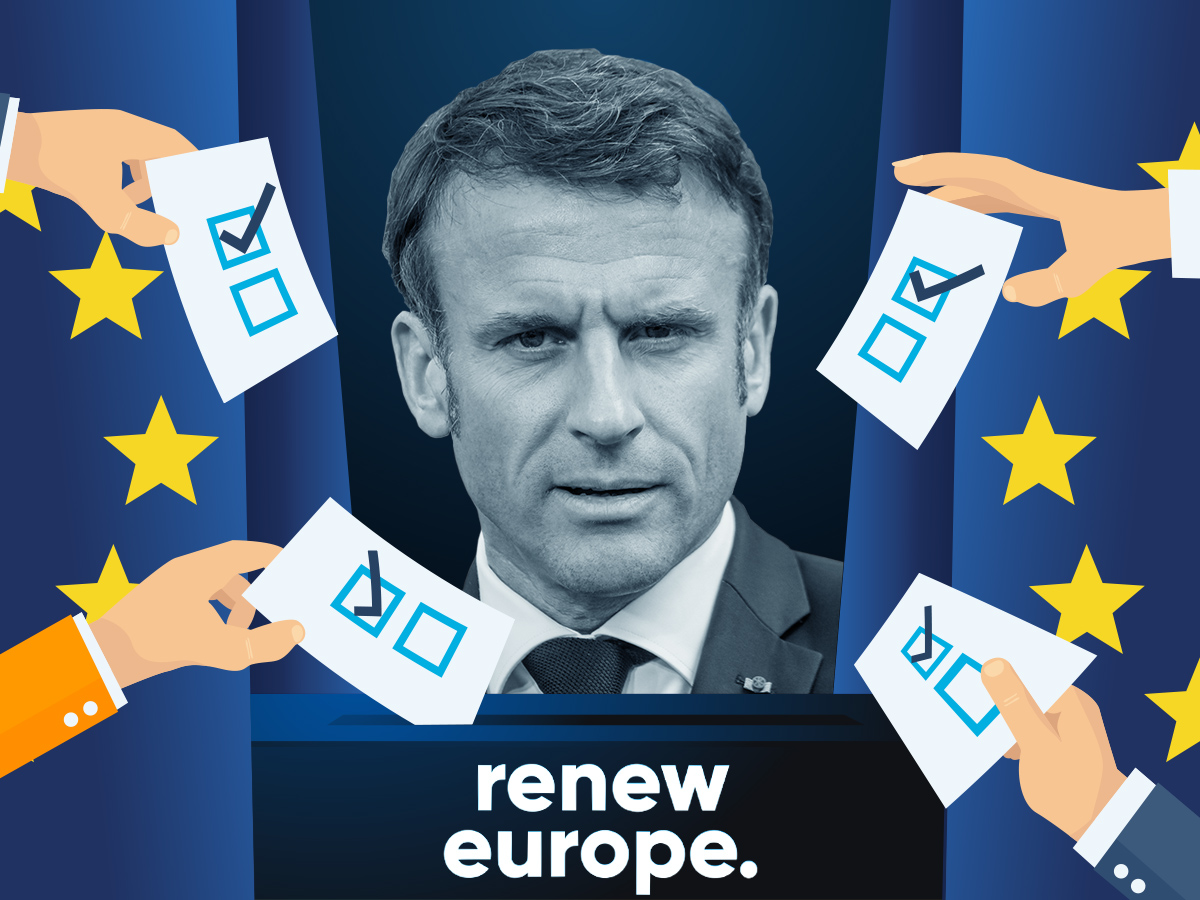About three years ago, Euronews ran an article about the internal debates within Renew Europe: about differences “pitting the old liberals and democrats of ALDE against the group leadership and the French delegation of Emmanuel Macron’s party”. Political trust was eroding, members from other political parties felt sidelined by the French “socio-liberalism” inspired by President Macron and quickly accepted by group leader Dacian Ciolos.
The situation is somewhat different, so that old article cannot be copy-pasted today.
But the underlying dynamics haven’t changed at all.
Though the European parliamentary elections are looming on the horizon, trouble is brewing within the Renew group, again.
And just like three years ago (or still exactly like that?) the main catalyst behind all the trouble is President Emmanuel Macron. For whom the conditions in the French “political pool” seem to become more and more unfavourable, thus he is trying his strength in other places.
Obviously having lost many of their campaign topics (even climate change is less worrying for young voters than economic woes, problems to which the far-right gives answers, not the left), debates within the liberal group go beyond the “to support or not to support the Spitzenkandidat process” – apparently not, as Renew chose to present a three person “Team Europe” (yet another “troika” for Europe), mainly thanks to the pressure exerted by the French.
The warning signs were there right from the start, though.
Formed as an attempt to establish deeper connections between “old liberals” of the Alliance of Liberals and Democrats for Europe (ALDE) and Macron’s La Republique En Marche, the new grouping’s new name (Renew) was adapted at French fears about having the word “liberal” in the name.
If anything, that should have been a bad omen, a warning sign that the new group will not (as many hoped), pursue and support the dreams of the (weakened) liberals, but would serve as a tool to amplify French interests.
And to get thrown under the bus the moment it failed to serve those, as the founding of the new Les Nouveaux Européens proves it.
Officially not a political party, “only” an association, it aims to bring together the liberal centre-ground. Something that could have been done within the Renew group – if it weren’t for those ideological differences between French (non-)liberals and “veteran liberals” like Mark Rutte’s ALDE and the small centrist European Democratic Party.
Under the flag of the new association, French MEPs are joined by Romanian, Slovenian, Polish and Danish liberals.
Currently a 22-strong formation, its members didn’t hesitate to declare their true intentions. As Gilles Boyer, a French MEP from the party Horizons (an ally for Macron) declared, “we want to convince everyone to join a single [European] political party”.
If one can draw any conclusions from the short past of Renew is that the single European liberal (?) party will be likely dominated by the French.
Neither truly liberal, nor free partners acting on a common belief, but a perfect tool to give the French Renaissance access to millions of euros of EU funding.
Unity could bring some advantages during the elections, projecting the message of consolidation, a strong force against the surge of the far right.
But as it is actually President Macron (and the French in general) whose standoff with Europe’s other liberals benefits nationalists like Le Pen, and not the other way around, maybe the proposed change of direction might not benefit liberals the way they hoped (just like Renew didn’t make the dreams come true). Or could lead to loss of voter confidence in an already heavily confused electorate.v
